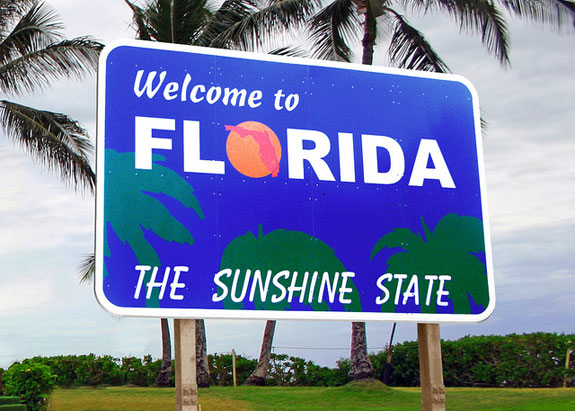
The Corporation for Enterprise Development ranked Florida near the bottom for income and financial security of residents. (Photo illustration: Flickr.)
By Howard Goodman
Florida Center for Investigative Reporting
In the run-up to Tuesday’s Florida Republican presidential primaries, our state’s distressed economy got national attention from the likes of the New York Times, NBC News and Bloomberg News.
Those portraits were grim enough, but here come a batch of statistics that makes Florida’s situation look even darker.
The Corporation for Enterprise Development, a Washington, D.C.-based advocacy group, released on Tuesday a sweeping study of the finances of average Americans. Their biggest finding: 43 percent of U.S. households are “liquid-asset poor.” That’s about 127 million people.
That means that “if one of these households experiences a sudden loss of income, caused, for example, by a layoff or a medical emergency, it will fall below the poverty line within three months,” according to Huffington Post reporter Alexander Eichler. “People in these households simply don’t have enough cash to make it for very long in a crisis.”
These are people who generally are working, but struggling. They’re doing better than the 15 percent of Americans — 46 million people — living below the poverty line.
That was the headline. In the finer print, the CFED broke down its data state by state. And Florida, it turns out, is one of the worst states in the nation for what the group calls “income and financial security.”
Florida’s overall ranking on the “Assets and Opportunity Scorecard”: 45th, out of the 50 states and the District of Columbia.
CFED graded the state in five categories. The grades are nothing to brag about.
- Financial assets and income: D.
- Businesses and jobs: D.
- Housing and home ownership: D.
- Health care: F.
- Education: C.
The highest-ranking state? Vermont.
The lowest? Georgia.
What can Florida do to improve? The group recommends three main avenues of attack:
Preserve Homeownership: To address its worst-place rank for foreclosures, Florida should regulate mortgage servicers and enable land banking to help stabilize communities.
Increase Incomes and Encourage Savings: To address high rates of income and asset poverty, Florida should enact state tax credits to supplement earnings for working families and remove the disincentive to save for very low-income families by lifting asset limits in two public benefit programs: TANF [Temporary Assistance for Needy Families] and family Medicaid.
Expand Health Care Coverage: To address its high uninsured rate, which is the third worst in the nation, Florida should expand coverage to more low-income people by raising income eligibility thresholds for Medicaid and implementing procedures that facilitate enrollment and renewal of coverage in CHIP [Children’s Health Insurance Program] and Medicaid.
The details, including the supporting statistics, are here.
